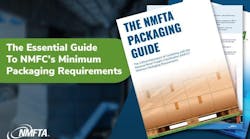Looking for ways to save fuel, cut emissions and be a better neighbor, Paradise Island Foods on Vancouver Island in British Columbia embarked on a path paved with green — both literally and figuratively.
Now, five years later, the company's fleet is certified as enviroTrucks and enviroTrailers with Green Fleets BC's (British Columbia's) new enviroTruck program. But to get there has been a journey, although the environmental and financial benefits have been worth it for Paradise Island, a family-owned producer of food and dairy products.
“When we started the program, I think we believed that going green was really expensive, but at least with our project, it hasn't been,” Jason Kozubal, operations manager, says.
The journey started in 2004 and has included driver training programs, onboard computers and the introduction of hybrid refrigeration units on the company's trailers.
The cost and carbon emissions savings of the Carrier Transicold Vector 1800MT refrigeration units with electric standby power proved so great once installed that even Kozubal was impressed. “We didn't have any idea [on greenhouse gas] savings when we started,” he says. “Once the Transport Canada folks started putting [the numbers] together, it was just amazing.”
According to Kozubal, the units, which plug into a 460-volt outlet, cut about 85 tons of greenhouse gas emissions in the first six months — and that's not the only savings. The company is seeing close to a 70% cut in operating expense and using 60% less diesel fuel by plugging the units into outlets at night, as they are running constantly when the trailers are loaded for the next day's deliveries.
But that point was really driven home, Kozubal says, when Paradise realized that its fueling company was filling the diesel storage tanks two to three times a week as opposed to daily deliveries before installation of the units. “That's how we knew we were right,” he says. “And since we've put in the units, we've gotten no more noise complaints” from neighbors.
The initial test period in late 2006, which included one multi-temp unit, showed a 36% savings in fuel consumption. Paradise was so pleased with that figure that the company quickly installed five multi-temp units and two single-temp units on fleet trailers in 2007. The results were staggering, Kozubal says, and all the information has been documented as part of a project for Transport Canada.
Installation of the reefers, which were retrofitted onto existing trailers, was made possible by grants from Transport Canada and Green Fleets BC. “We're somewhere in the neighborhood of $1,500 per month just in fuel savings,” Kozubal says.
The results have led Kozubal to encourage anyone who will listen to invest in the technology. “Can you imagine how much cleaner our environment would be if all the reefers in the U.S. and Canada did this?” he asks. “We've worked closely with Carrier and they've been amazing.”
The unit is ideal for regional refrigeration operations such as Paradise Island Foods, Kozubal says, because the trailers are oftentimes parked at a distribution facility at night and can be plugged in for operation.
Hybrid refrigeration is not the only area where Paradise Island is ahead of the curve. Aerodynamic Kenworth T660 day cabs with ultra-low emissions engines, speed limits set at 56 mph and idle shutdown technology have helped the company reduce its tractor idling rate to 1.7% overall.
“One of the things we did was put in a driver-incentive program,” Kozubal says. One question was whether drivers, who are hourly employees, would face longer work days with the slower speeds. “Our payroll hasn't increased at all, and it hasn't made a difference in delivery times.” The company offers drivers a quarterly bonus for fuel saved, equivalent to 50% of the fuel cost savings.
Another change was the installation of Xata Corp.'s XataNet onboard computer, which offers full driver's logs, GPS tracking and route optimization, and shift progression among other benefits. “We put the systems in the trucks, set the speed limits, and within 30 days our fuel efficiency of the tractors improved 21%,” Kozubal says.
The whole project has “been exciting for us because the little guy gets to show how you to make a difference,” he adds.


